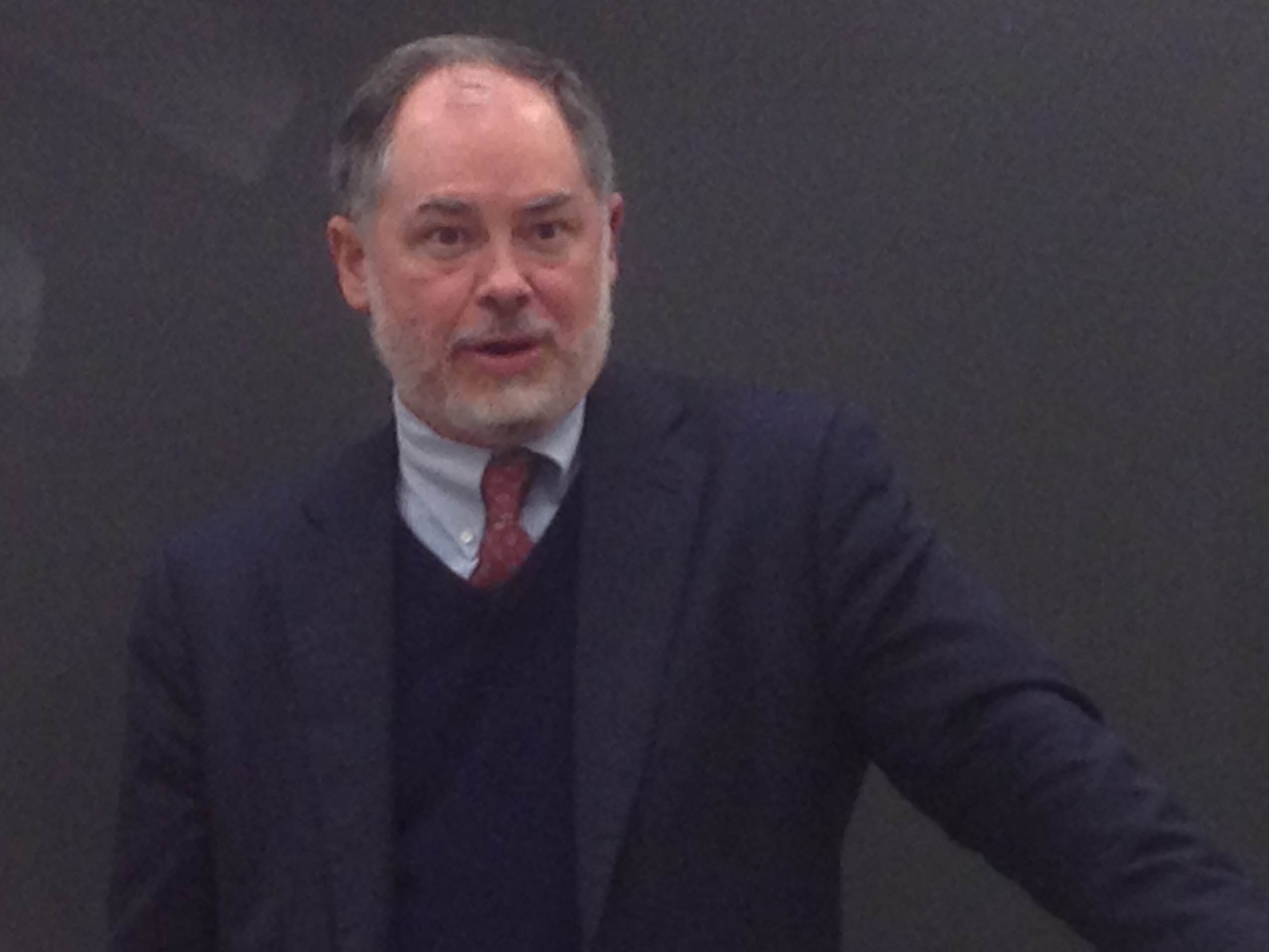Quin Hillyer (COL ‘86), Contributing Editor of the National Review Magazine and Senior Editor for the American Spectator, criticized protests relating to free speech at Georgetown and other universities nationwide in a talk titled “Free Speech at Georgetown” on Jan. 28.
Hillyer started by discussing the nature of a university and how attempts to stifle speech deemed hateful or offensive might threaten the intellectually open culture of any university. “I fear that the very idea of a university, the central galvanizing idea that makes a university distinct from other big institutions is under serious assault,” he said. “It is under assault nationwide, it is under assault here at Georgetown, and it is an assault that must be resisted, rejected and defeated.”
Hillyer criticized last year’s protests at Christina Hoff Sommers’ lecture as an attack on free speech. “The assault is against free minds, free speech, free inquiry within the world of ideas, and thus against the enterprise of higher learning itself,” he said. “And to be blunt, it is an assault that reared its head at Georgetown with what I hate to say was an overheated, tawdry and downright embarrassing campus reaction to the speech by scholar and lecturer Christina Hoff Sommers.”
“On one level, if you don’t even understand the absurdity and Orwellian double-speakery of The Hoya’s editorial, complaining of ‘obstructive dialogue’ and of a ‘harmful conversation,’ it’s tempting to say you’re already too far gone and there’s no hope for you,” said Hillyer. “On the other hand, if you have a mind good enough to be accepted into Georgetown, surely you have the capability of reassessing rank absurdity.”
Citing two examples from his time at Georgetown where professors supported the free and open exchange of ideas, even those contrary to their opinions, Hillyer discussed his memory of the intellectual culture at Georgetown. “Even for a university with a strong, or what once was strong, religious identity and mission, the idea of a university reigned,” he said. “Free speech and inquiry as the very essence of a university education were and should be sacrosanct.”
Hillyer conceded that the events at Georgetown last spring were “one example, indeed a mild example, of the unfortunate context of the more egregious thread of campus anti-speech proto-totalitarianism nationwide,” compared to incidents at other universities such as Princeton and Yale.
Fielding a question about the causes of Donald Trump’s support in the Republican presidential primary polls, Hillyer blamed poor civic education. “A lot of it is civic education has been horrible,” he responded. “Civic education and history have not been taught well. And I don’t mean ideologically, I mean just the basics … They don’t understand how freedom works in a blended power constitutional republic, then when things go badly they get frustrated and they want to shut the other side down,” he said.
Jeff Naft (COL ‘17), Director of External Affairs of the Campus Republicans, appreciated hearing about Hillyer’s experience with free speech and politics as a Georgetown alumnus. “It’s very rare when we get someone from so high up in journalism to come over and talk about these things,” he said. “Talking about free speech, talking about political correctness, as well as just talking about 2016, everybody loves talking about the issues.”





